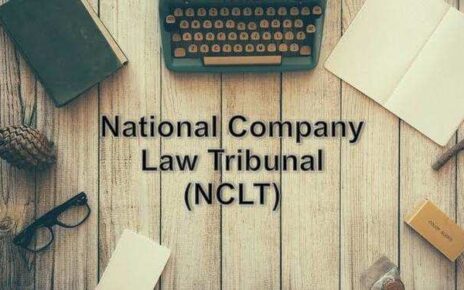An interesting question came up before the SC, on the right to claim set-off in the Corporate Insolvency Resolution Process, when the Resolution Professional proceeds in terms of clause (a) to sub-section (2) of Section 25 of the Insolvency and Bankruptcy Code, 2016 to take custody and control of all the assets of the corporate debtor.
The facts in brief:
By the letter dated 12th January 2019, the Resolution Professional for Aircel Limited, Dishnet Wireless Limited and Aircel Cellular Limited, wrote to Bharti Airtel Limited, stating that they had suo moto adjusted an amount of Rs.112.87 crores from the amount of Rs.453.73 crores payable by Airtel entities to Aircel entities, consequent to the discharge and cancellation of the bank guarantees.
By the letter dated 12th January 2019, the Resolution Professional for Aircel Limited, Dishnet Wireless Limited and Aircel Cellular Limited, wrote to Bharti Airtel Limited, stating that they had suo moto adjusted an amount of Rs.112.87 crores from the amount of Rs.453.73 crores payable by Airtel entities to Aircel entities, consequent to the discharge and cancellation of the bank guarantees.
The Airtel entities thereupon approached the Adjudicating Authority in Mumbai, who, vide order dated 1st May 2019 held that the Airtel entities had a right to set off Rs.112.87 crores from the payment, which was retained, and due and payable to Aircel entities.
This order was challenged by the Resolution Professional before the National Company Law Appellate Tribunal. The NCLAT vide order dated 17th May 2019 allowed the appeal, inter alia, holding that set-off is violative of the basic principles and protection accorded under any insolvency law. Set-off is antithetical to the objective of the IBC. Reference was made to the non-obstante provisions in the form of Section 238 of the IBC.
Judgement:
The matter eventually landed before the SC. The SC inter alia drew attention to Reg. 29 of Liquidation, which reads as under:
“Reg. 29 of Liquidation Process Regulations – Mutual credits and set-off.— Where there are mutual dealings between the corporate debtor and another party, the sums due from one party shall be set off against the sums due from the other to arrive at the net amount payable to the corporate debtor or to the other party.”
The title of the Liquidation Regulations states that they shall apply to the process under Chapter III Part II of the IBC. In other words, the Liquidation Regulations are not applicable to Chapter II Part II of the IBC, which relates to the Corporate Insolvency Resolution Process”.
SC further held that the relationship and the nature of identity of the Corporate Debtor undergo a change on the commencement of the Corporate Insolvency Resolution Process. Set-off of the dues payable by the Corporate Debtor for a period prior to the commencement of the Corporate Insolvency Resolution Process cannot be made and is not permitted in law from the dues payable to the Corporate Debtor post the commencement of the Corporate Insolvency Resolution Process.
Insolvency set-off as a proposition mitigates against the doctrine of pari passu. Insolvency set-off gives primacy and an overriding effect to the creditor who is entitled to set-off mutual credits. When cross demands are set-off, the assets available for distribution amongst the general body of creditors, would be depleted in favour of a single creditor with a set-off entitlement.
The principle of pari passu though not explicitly mentioned in the IBC, is apparent as the edifice of Section 53 read with Section 52 of the IBC, as these provisions create a liquidation hierarchy with the stipulation that each class of creditors shall rank equally among each other. The same class of creditors should be given equal treatment. As set-offs can mitigate against the pari passu principle, they should be allowed when mandated, or can be justified by law.
Having considered the contentions raised by the appellant Airtel entities in detail, and in light of the provisions of the IBC relating to the Corporate Insolvency Resolution Process, we do not find any merit in the present appeals and the same are dismissed. There will be no order as to costs.



